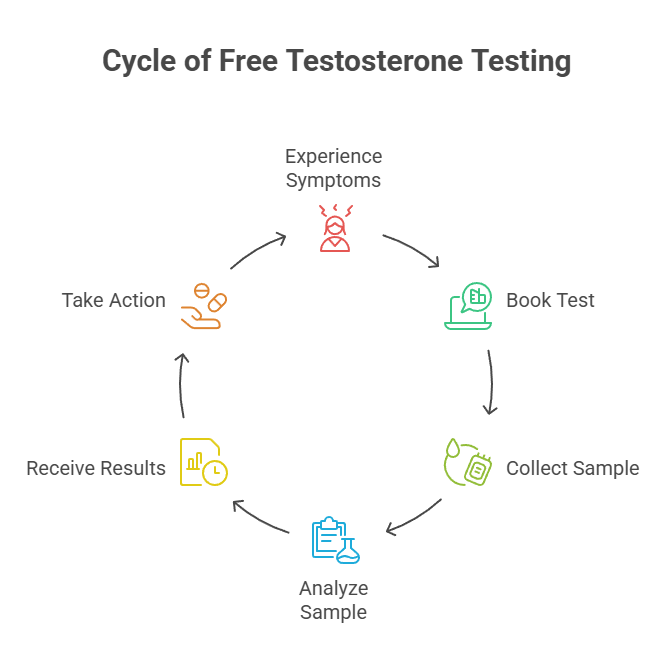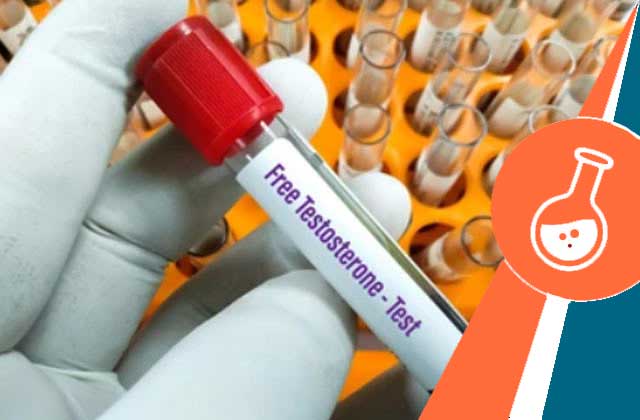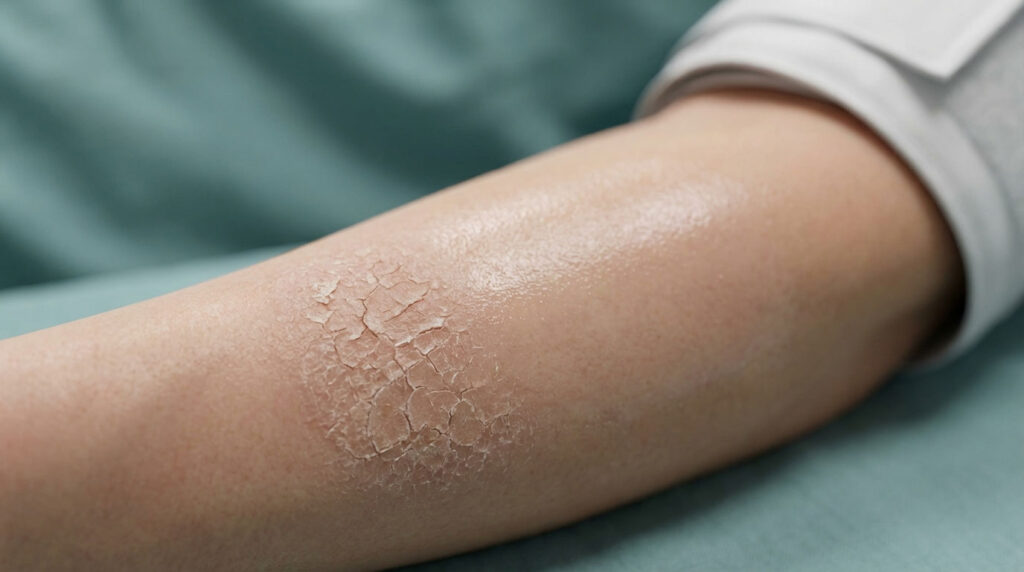
Free Testosterone and its Function
Free testosterone refers to the portion of total testosterone that is not bound to proteins in the blood, such as sex hormone-binding globulin (SHBG) or albumin. It represents the biologically active form of testosterone that is available to tissues and cells in the body.
Conditions that may require Free Testosterone Test
A free testosterone test may be prescribed in the following conditions:
- Symptoms of low testosterone: If an individual presents with symptoms of low testosterone, such as decreased libido, erectile dysfunction, fatigue, reduced muscle mass, mood changes, or decreased bone density, a free testosterone test may be ordered to assess their hormone levels.
- Hormonal imbalances: Hormonal imbalances can occur due to various factors, including certain medical conditions, medications, or lifestyle factors. If there is a suspicion of an imbalance in testosterone levels, a free testosterone test can help determine if the individual has low or high levels of free testosterone.
- Hypogonadism: Hypogonadism refers to a condition where the testes in males or ovaries in females do not produce enough sex hormones, including testosterone. A free testosterone test can be used to diagnose and monitor hypogonadism in males.
- Polycystic ovary syndrome (PCOS): PCOS is a common hormonal disorder in women, characterized by elevated androgen (male hormone) levels. Free testosterone levels may be measured in women with PCOS to assess the degree of androgen excess.
- Evaluation of fertility issues: Testosterone plays a role in male fertility. If a couple is experiencing difficulty conceiving, a free testosterone test may be ordered to assess the male partner’s hormone levels and evaluate potential factors contributing to infertility.
- Monitoring testosterone replacement therapy: Testosterone replacement therapy may be prescribed for individuals with diagnosed testosterone deficiency. Monitoring free testosterone levels can help ensure that the therapy is providing adequate hormonal balance.
Free Testosterone Test Procedure
The free testosterone test is performed using a blood sample. Our professional will clean the area, usually on the inner elbow or back of the hand, with an antiseptic. He will then insert a needle into a vein to draw a blood sample. The collected blood is transferred into a test tube or vial.
Interpreting Free Testosterone Test Results
Here is a general understanding of how free testosterone test results are interpreted:
- Normal range: Free testosterone levels can vary depending on factors such as age, sex, and the specific laboratory’s reference ranges. Generally, a normal range for free testosterone in adult males is around 9 to 30 picograms per milliliter (pg/mL) or 0.3 to 1.0 nanomoles per liter (nmol/L). For adult females, the normal range is lower, typically ranging from 0.1 to 6.4 pg/mL or 0.003 to 0.22 nmol/L.
- Low levels: Low free testosterone levels may indicate testosterone deficiency or hypogonadism. Symptoms of low testosterone can include decreased libido, erectile dysfunction, fatigue, reduced muscle mass, mood changes, or decreased bone density. However, a diagnosis of low testosterone cannot be made based solely on low free testosterone levels, as symptoms and other factors need to be taken into consideration.
- High levels: High free testosterone levels may indicate an excess of testosterone, which can occur in conditions such as polycystic ovary syndrome (PCOS) in women. Symptoms of high testosterone levels can include hirsutism (excessive hair growth), acne, irregular menstrual periods, or male-pattern baldness in women. In men, high testosterone levels may be associated with conditions like testosterone-secreting tumors.
- Clinical correlation: It’s important to interpret free testosterone test results in the context of your symptoms, medical history, and other laboratory tests. Hormone levels can fluctuate throughout the day, and a single test may not provide a complete picture of your hormonal status.
- Follow-up testing: In some cases, if free testosterone levels are abnormal, further testing may be necessary to confirm the results and investigate potential underlying causes. Additional tests may include total testosterone levels, luteinizing hormone (LH) and follicle-stimulating hormone (FSH) levels, or other hormone assessments.
Treatment for Low Free Testosterone levels
- Testosterone replacement therapy (TRT): Testosterone replacement therapy is the most common treatment for low testosterone levels in males. It involves the administration of exogenous testosterone to restore hormone levels to normal. TRT can be administered through various methods such as injections, topical gels, patches, or pellets implanted under the skin.
- Medications to stimulate testosterone production: In some cases, medications may be prescribed to stimulate the natural production of testosterone. These medications, such as clomiphene citrate or human chorionic gonadotropin (hCG), work by stimulating the production of luteinizing hormone (LH) and follicle-stimulating hormone (FSH), which in turn stimulates testosterone production in the testes. These medications are typically used in cases where fertility preservation is desired or when TRT is not an option.
- Lifestyle modifications: Certain lifestyle changes can help optimize testosterone levels. These may include regular exercise, weight management, stress reduction, adequate sleep, and a balanced diet. Although lifestyle modifications alone may not drastically increase testosterone levels, they can support overall health and hormone balance.
- Treatment of underlying conditions: If low free testosterone levels are a result of an underlying medical condition such as hypogonadism, pituitary dysfunction, or certain genetic disorders, treating the underlying condition may help restore testosterone levels. This may involve medication, surgery, or other appropriate interventions as determined by the healthcare professional.
- Regular monitoring and follow-up: Once treatment is initiated, regular monitoring of hormone levels and symptoms is important to ensure that testosterone levels are within the desired range. Dosage adjustments or changes in treatment approach may be made based on individual response and clinical indicators.
More Related Tests
Why To Book with HealthCareOnTime

17 Crores+ Samples Processed

World Class Technology Labs

25+ Years of Trust & Experience

Free Home Collection
FAQs Around Free Testosterone Test
How much does Free Testosterone Test cost?
The Free Testosterone Test cost is Rs.1000, although it is now available for Rs.729 because of the offer.










